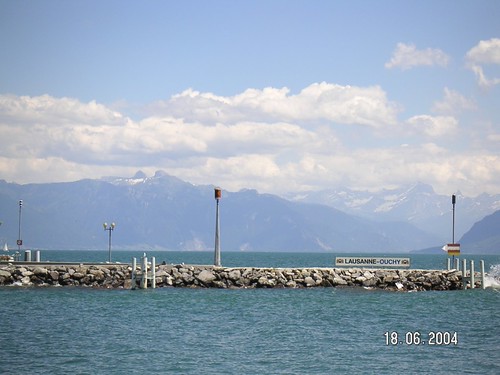 Belated birthday wishes to Anita Brookner, and a day late, but a happy International Anita Brookner Day to the rest of you.
Some time back, I decided to re-read Anita Brookner's Booker-winning Hotel du Lac a few months back, as part of Sarah's Not A Rat's Chance In Hell, and last week seemed to be the right time to read it (what with 16th July being IABD, hosted by Thomas at my Porch and Savidge Reads).
Belated birthday wishes to Anita Brookner, and a day late, but a happy International Anita Brookner Day to the rest of you.
Some time back, I decided to re-read Anita Brookner's Booker-winning Hotel du Lac a few months back, as part of Sarah's Not A Rat's Chance In Hell, and last week seemed to be the right time to read it (what with 16th July being IABD, hosted by Thomas at my Porch and Savidge Reads).
I enjoyed Hotel du Lac the first time I read it, when I was still in my teens - the pathos, the despair, the richness of characters and the fact that it is set in Switzerland. Switzerland is, by far, my favourite country in the world, and I intend to live there at some point in my life. It just feels like... home.
The re-read, however, wasn't quite the same experience. I felt myself getting slightly more frustrated with Edith's character, and her complete lack of proactivity. It was almost like she was resigned to her fate, and was letting life pass her by; letting other people pull her strings.
Edith, an established writer, has been exiled to a hotel by Lake Geneva. Her friends have advised her to “disappear for a decent length of time and come back older, wiser and properly sorry,” for an act that she has committed, albeit it isn't quite clear what that act is, in the opening pages of the book. In the hotel, she meets a myriad of characters, each seeking a break from reality, and as she gets to know them better, we (as readers) get to know our protagonist better as well.
What it had to offer was a mild form of sanctuary, an assurance of privacy, and the protection and the discretion that attach themselves to blamelessness.
Edith is in love with David, a married man, but her affair with him is not the reason behind this exile. And, it's not her absolution. She writes letters to David regularly, and yearns for his presence, which doesn't seem forthcoming. She attempts to return to her writing in the hotel, but the characters that surround her distract her - mostly, the women, but there is the one man who catches her eye? Or, does she catch his eye?
The women in the hotel, which is indeed very selective of its guests, include the extravagant superficial Puseys whose interests most involve shopping and living an expensive lifestyle; Monica, who seems enviously condescending of the Puseys, as she spends her days sharing coffee, ice-cream and cakes with her dog; and Madame De Bonneuil, an old lady, who's been abandoned by her son after his marriage. Then there's Mr. Neville, a self-proclaimed romantic who thinks he's good for Edith...
A lot of the book focuses on women, and how their stature evolves with age and marriage; the importance of marriage and of having the significant other. Of course, this is predominantly due to the time in which the book was set - possibly the 70s - but subjecting all women to such... banality... was what got me slightly annoyed. A woman's place in society should be incidental to her marriage, not a result of it - that's my verdict, but then again, I live in the twenty-first century, so it is easy for me to say that.
The company of their own sex, Edith reflected, was what drove many women into marriage.
Brookner does pull out a couple of good twists though, which almost saves Edith's character, for she does come across as a passenger in her own life, not an active participant - definitely not the driver. It was well-written and slightly humorous, but, despite being under two hundred pages, oh-so-slow, that it almost feels like a book you want to curl up with, a glass of red wine in one hand, and the Moonlight Sonata playing on the stereo.
Thought I'd share some gorgeous pictures of places that have been mentioned in this book as well... it really is a place I would recommend to go to, to get some respite from the world.


Oh, and do let me know which Brookner should I read next? Just go chronologically, or... which are your favourites?
 This is another one of my reviews that have been pending for over a month. While I'm reading the super-chunky Midnight's Children, I thought it's a good time to get up-to-date with some of the reviews which really should have been written earlier.
This is another one of my reviews that have been pending for over a month. While I'm reading the super-chunky Midnight's Children, I thought it's a good time to get up-to-date with some of the reviews which really should have been written earlier.